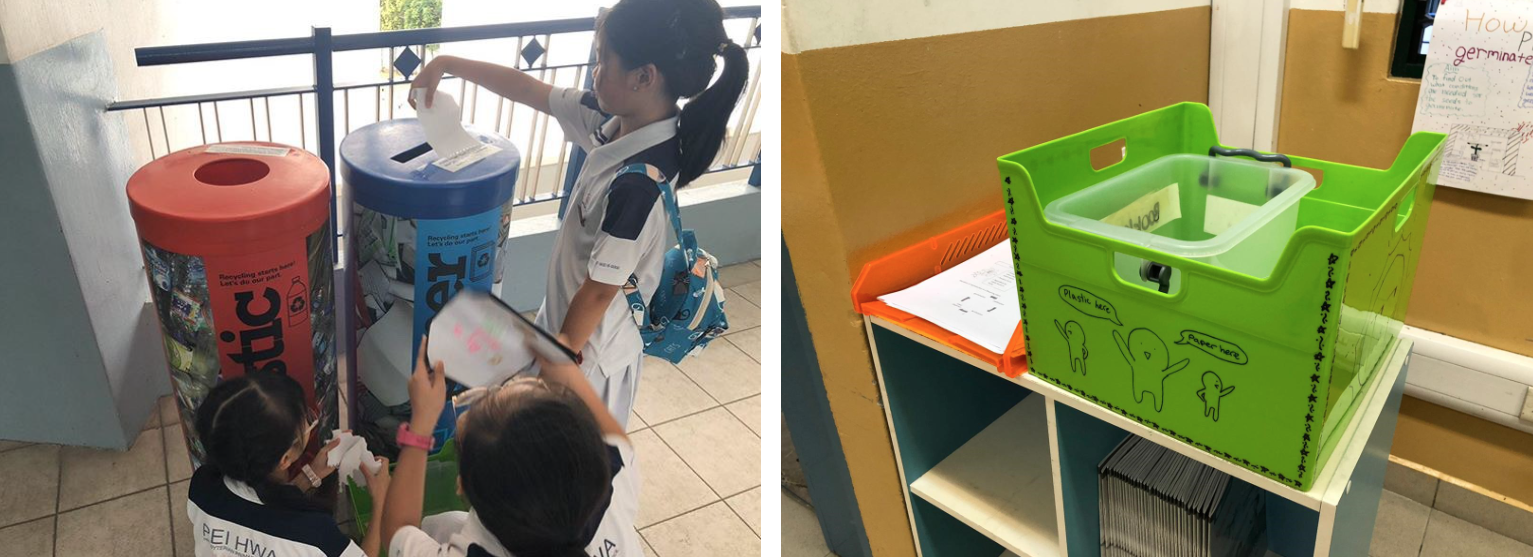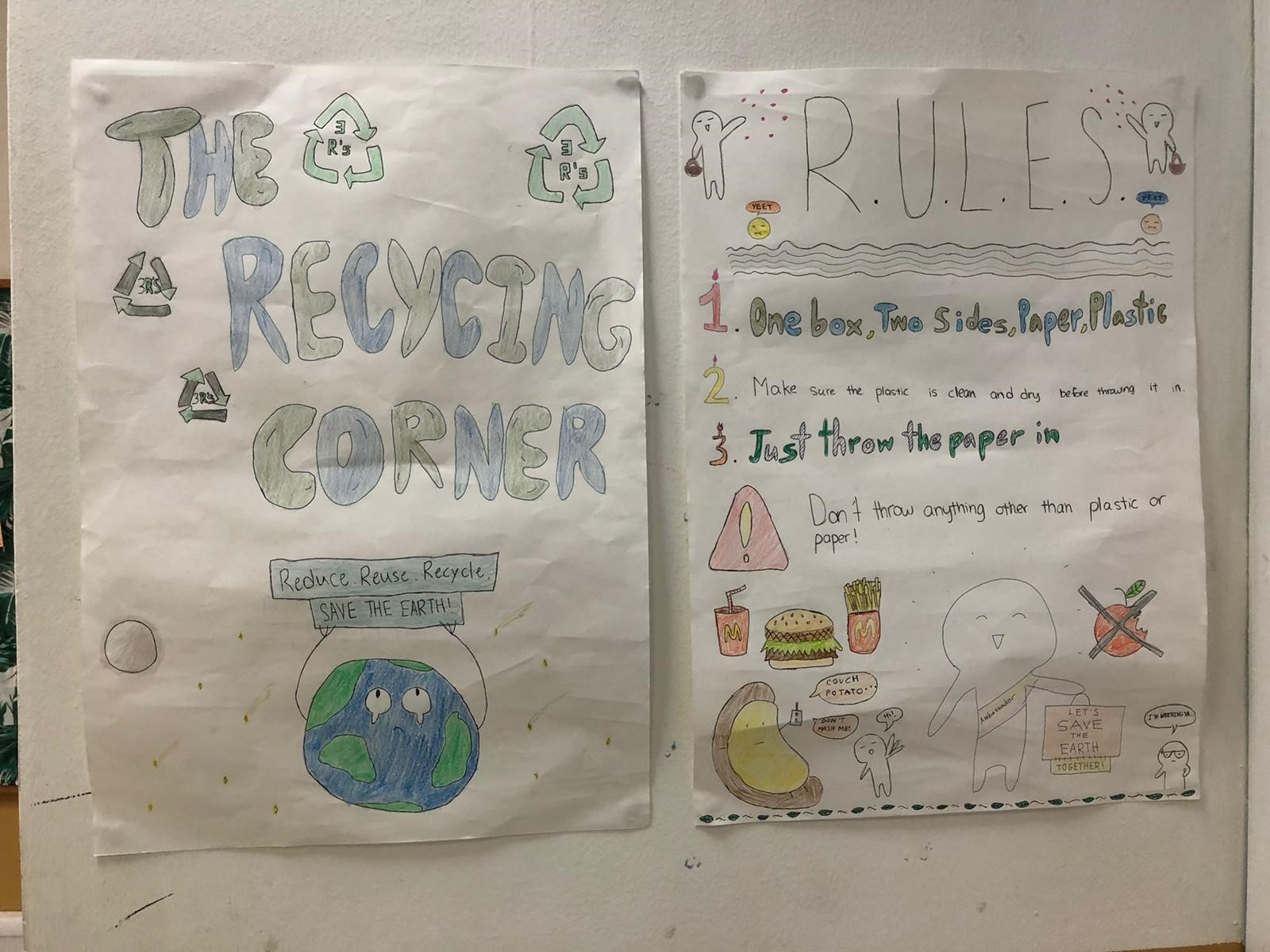Science

Experiencing Science, Enriching Mind
Central to the Science curriculum is the inculcation of the spirit of scientific inquiry. Taking cognizance of this, the Science department aims to provide our pupils with a range of learning experiences such as scientific investigations, authentic learning tasks and learning journeys. These will create the opportunities for our pupils to think, talk and inspire others about issues and pose questions that are related to the roles of science in our daily lives, society and the environment. To develop in our pupils the skills, habits of mind and attitudes necessary for scientific inquiry, the school adopts the 5E (Engage, Explore, Explain, Elaborate and Evaluate) instructional model. This model advocates that teacher leverages and builds on pupils’ prior knowledge and experience to help them construct new knowledge or idea to innovate, and to continually assess their understanding of a concept.
School-Based Curriculum
| Themes | Lower Block | Upper Block |
||
|---|---|---|---|---|
| Primary 3 | Primary 4 | Primary 5 | Primary 6 |
|
| Diversity |
Diversity of Living and Non-living things Diversity of Materials |
|||
| Cycles |
Cycles in plants and animals (Life Cycles) Cycles in matter |
Cycles in plants and animals (Reproduction) Cycles in water |
||
| Systems |
Plant System (Plant parts and functions) Human System (Digestive System) |
Plant System (Respiratory and Circulatory systems) Human System (Respiratory and Circulatory systems) Cell System Electrical System |
||
| Interactions |
Interaction of forces (Magnets) |
Interaction of forces (Frictional force, Gravitational force, force in springs, Magnetic force) Interaction within the environment |
||
| Energy |
Energy form and uses (Light and Heat) |
Energy forms and uses (Photosynthesis) Energy conversion |
||
Authentic Learning through Learning Journeys
We believe that learning should not be restricted to only in the classroom and that the learning becomes more real and long-lasting as the pupils see for themselves how the concepts in the textbook are lived out in real-life. As part of the department’s vision of “Experiencing Science, Enriching Minds”, we plan learning journeys that ties in with at least 1 of the main topic for each level. These learning journeys authenticate their classroom-based learning as pupils make real and concrete what they have learnt in school. This allows our pupils to better appreciate Science in daily life and society, and understand the relationship between Science and the environment.
Green Education @ PHPPS
As part of the school’s effort to inculcate social responsibility and respect for the environment, the Science Department, dedicates a week in April, known as the Green Week. This avenue provides pupils the platform to share ongoing environmental issues that impacts or are impacted by humans. In addition, they also learn of how they can play their part as an individual to help protect the environment.
The overarching theme for Green Education@PHPPS is Conservation, and with a different sub-theme each year it sets the stage for pupils to work towards the focus of the year. For 2020, the sub-theme is Zero Waste and in our efforts to move towards Zero Waste, the Environmental Leaders in each class spearhearded the recyclying initaitive in the classrooms. They helped to prepare a recycling corner and thereafter educated their classmates on the accurate disposal of materials in the respective recycling bins.
Environmental leaders through their research and encounter with articles, videos, share or even conduct presentations to inform their fellow classmates on the importance of Conservation.


Innovation Programme (IvP)
Innovation programme (IvP) provides a unique opportunity for selected Primary 5 pupils to develop their problem-solving and inventive skills. The Innovation Programme aims to equip the pupils with the mind-set, skills and knowledge of an Entrepreneur and to assist the pupils to generate new, innovative ideas that can help the society and improve our living conditions. The various training sessions that the pupils attend helps to nurture a “problem-solution” mind-set for pupils and to enhance the pupils’ creative and innovative thinking skills. The pupils will develop a prototype that helps improve the lives of people and to present their idea in front of a panel of judges who will select the best innovative product as well as the best presentation group.
Assessment
Assessment is an integral part of learning and there are different modes of assessment that the Science employ to assess our pupils’ understanding of the concepts taught as well as to identify the learning gaps for intervention.
Checklists and rubrics are used to monitor the pupil’s understanding of key learning for each level. Topical worksheets are given at the end of each topic and these help to consolidate the learning of the concepts as the pupils apply what they have learnt to answer the questions in these worksheets. These form part of the assessment for learning where feedback is given to the pupils on their work for improvement.
Practical skills are assessed during the performance tasks. Pupils are assessed on how well they conducted the experiments and how they analyse and evaluate the data they have collected to draw conclusions. Feedback from the teachers are given to the pupils to help them improve on how they should conduct the experiment accurately.

